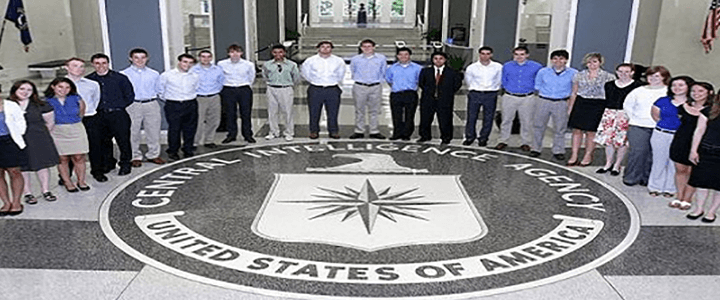The Central Intelligence Agency. The National Security Agency. The Federal Bureau of Investigation. Perhaps one or two others. Those are the three intelligence organizations people imagine the most when thinking about the intelligence community. But there’s more. Much more. And as a cleared professional, especially if you’re a job hunting cleared professional or a professional of some other sort with unique skills, you want to intimate yourselves with all seventeen members of the community. Chicago Tribune’s Nina Agrawal can help get you started.
TIP O’ THE TONGUE
These intelligence agencies are the ones pop culture and Edward Snowden has put on the tips of everybody’s tongue. The Office of the Director of National Intelligence (ODNI), the Central Intelligence Agency (CIA), the National Security Agency (NSA), the Defense Intelligence Agency (DNI), and the Federal Bureau of Investigation (FBI). We hear about these all the time, even though the NSA denied its own existence for quite a while. And Agrawal calls the CIA “the most recognized intelligence agency,” a fact folks at Langley both loves and hates.
MIGHT HAVE MISSED ‘EM
Then there are those we’ve heard about that haven’t really cracked into the national collective consciousness. Few realize that the National Geospatial-Intelligence Agency (NGIA) is at its most basic level about mapping the world as we know it, right down to the street corner in your neighborhood. The data NGIA collects supports everything from military strikes to humanitarian relief. The National Reconnaissance Office (NRO) was a secret until 1992, but it’s been our country’s eye in the sky since the early 1960s. But the NRO isn’t just collecting; it “designs, builds and operates the nation’s reconnaissance satellites.”
MISSED THEM COMPLETELY
We never really hear about these offices: the Department of State’s Bureau of Intelligence & Research, the Drug Enforcement Administration’s Office of National Security Intelligence, the Department of the Treasury’s Office of Intelligence & Analysis, and the Department of Energy’s Office of Intelligence & Counterintelligence. Yet, it’s not really surprising that each of these organizations have their own intelligence assets in order to do their work. The State Department’s intelligence apparatus is “one of the smallest intelligence agencies.” Looking outward, State’s Bureau of Intelligence & Research focusing its attention on information, trends, actors, and other elements that might undermine the country’s foreign policy work in missions around the world.
MILITARY INTELLIGENCE
It’s no surprise that each branch of the military would have its own intelligence agencies, but we don’t really think of these resources, probably because they are hidden among the services’ more popular capabilities. But, we shouldn’t forget Army Military Intelligence, the Office of Naval Intelligence, Marine Corps Intelligence, and Air Force Intelligence, Surveillance & Reconnaissance.
And then there’s one I think most would miss, but absolutely shouldn’t: Coast Guard Intelligence. “On an average day,” cites Agrawal, “the Coast Guard conducts 45 search-and-rescue cases, seizes 874 pounds of cocaine, interdicts 17 migrants and helps move $8.7 billion worth of goods.” Now, think about how valuable their operations can be to organizations like Homeland Defense, the DEA, the FBI, the Department of State, and a few others.
TAKEAWAYS
First, our country’s intelligence community is huge, with immense capabilities to collect information and brilliant minds to analyze and report on the implications of that information. Imagine what they can do together, sharing and synthesizing data from the wide range of organizations and specialties.
Second, every one of these organizations needs smart, innovative, passionate cleared professionals and leaders to do their work. The sorts of jobs that are out there for cleared professionals range from the intelligence analyst to designers, engineers, criminal specialists, geologists, humanitarians, physicists, accountants, political scientists, mathematicians—Agrawal notes that NSA is “is believed to employ more mathematicians than any other organization in the country”—and much, much more.
So if you’re concept of a cleared professional is limited to those skills usually associated with basic intelligence functions, it’s time to dive a little deeper and see what opportunities are out there for you and your expertise.



